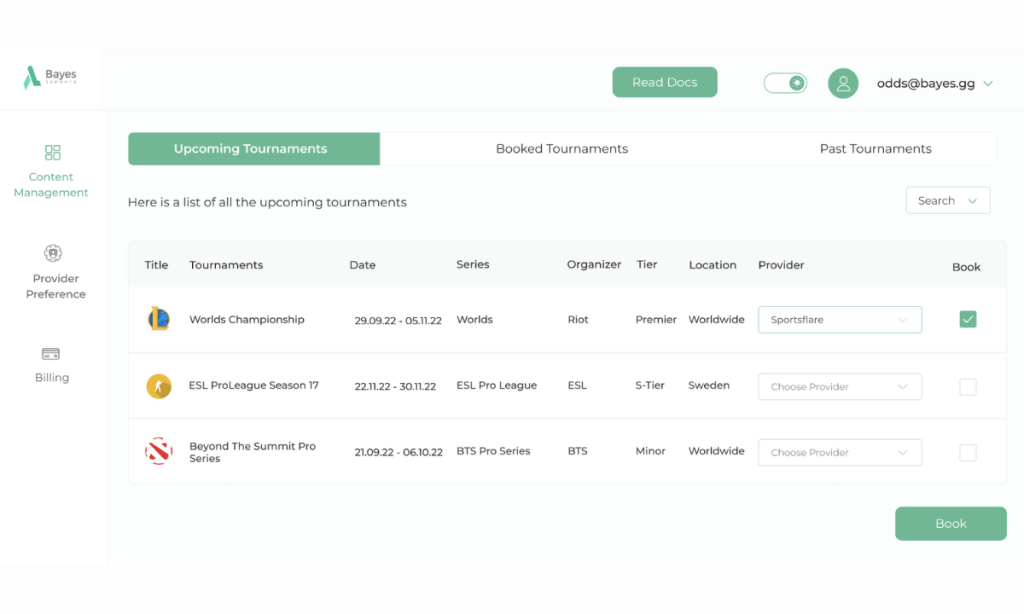
Esports data platform Bayes Esports has launched a new service earlier this week called BODEX, an odds integration solution that aims to improve the quality of offerings in the esports betting market by integrating odds from multiple sources.
Esports Insider sat down with Agnes Wasikowska, Lead Product Manager for Bayes Esports, to understand how it does so, what exactly BODEX brings to the table, and what plans Bayes Esports has for scaling in the future.
To put it simply: BODEX allows betting operators to access betting odds from multiple sources using only one integration, instead of multiple ones, as was the industry standard before.
Wasikowska explained that due to the fact that esports is a very dynamic industry, the betting market has a large number of smaller, specialised odds providers, which focus on a small part of the esports ecosystem. For example, some providers might just focus on one or two esports titles, while large sportsbooks might want dozens of games in their portfolio.
Because of this, a sportsbook that wants to provide a complete product would need to work with multiple companies for multiple integrations. Bayes Esports released BODEX to solve this problem, essentially allowing for multiple odds feeds to be aggregated in a single product, making it much easier to support a large number of esports titles.
Wasikowska explained how this works: “ The key component is having centralised databases that keep track of the mapping between the disconnected ID systems of the provider. Once we are able to map each fixture across a set of providers we can allow the customer to completely customise their product by combining tournaments, markets or event products across various providers.”

Simpler for everyone involved
The main advantage of BODEX for betting operators is, of course, the fact that there is one, single integration, instead of multiple ones. Crucially, all odds packages will be standardised to Bayes’ data format, market definitions and API, making it easier to integrate for betting operators.
Wasikowska added that Bayes Esports aims to maximise coverage, enable access to specialised providers and shifting more focus towards live odds, her personal favourite benefit of the BODEX system.
Still, there are risks involved with working with a large number of odds feeds and integrations. Bayes Esports has a “very strict criteria” for the providers it onboards to the platform, Wasikowska said, and added that Bayes Esports mostly works with providers who use machine learning-based odds supplemented by trader input. This makes the risk of potential arbitrage opportunities as low as possible.
There are other safeguards that Bayes Esports uses to minimise risks, Wasikowska explained. “Something we are adding is being able to benchmark and compare the quality of odds.
“Through expanding on our internal prediction infrastructure we want to ensure we are able to vet the quality of the odds that we receive and detect arbitrage opportunities when they present themselves. Further on the topic of risk, we are simultaneously working on being able to provide a risk management solution alongside to offer the full product package.”
Possibility of venturing into traditional sports
Interestingly, Bayes Esports has hinted that there is a possibility of going into traditional sports in the future — a vote of confidence that its esports offering is innovative enough to add value to a much more established market. Wasikowska said that the company has gathered a lot of experience with building esports-focused products and is confident that the lessons learned can be applied to traditional sports as well.
Wasikowska hinted that this is especially the case for sports that, similarly to esports, are highly driven by live crowd events.
Bayes Esports is currently in the process of looking for early adopters of BODEX who can work on shaping the product in the future. Companies interested in working with Bayes Esports can contact sales@bayesesports.com for enquiries.
Supported by Bayes Esports
